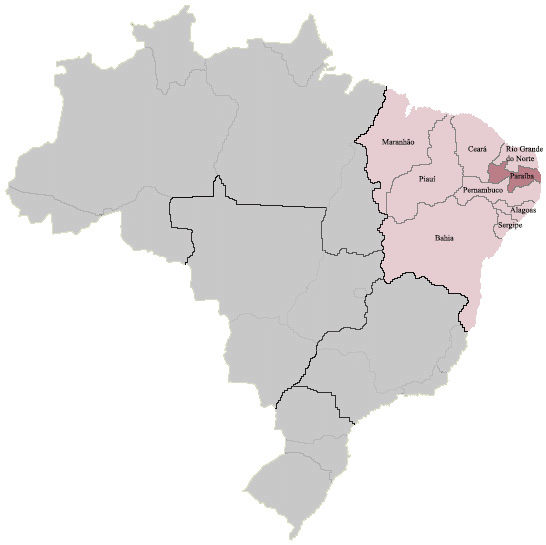RIO DE JANEIRO, BRAZIL – President Jair Bolsonaro has already referred to the northeasterners as “paraíbas”, a pejorative term that does not suit the lips of civilized people, much less those who are responsible for governing them. He has also referred to the cash transfer programs, responsible for sustaining a considerable part of the northeastern economy for a long time, as “buying votes,” a means of “taking money from those who produce and giving it to those who sit around.”
But now, that’s water under the bridge. Currently, Bolsonaro’s main political capital is the growth of his popularity in the Northeast, driven mainly by the R$600 emergency aid for casual workers who lost their income due to the Covid-19 pandemic. “Bolsonaro is growing vertiginously in the Northeast,” assessed Senator Ciro Nogueira (PP-PI), one of the President’s main supporters in the so-called Centrão bloc of Congress.

The politician from Piauí is an experienced voice when it comes to analyzing wind direction. He was in the support base of the governments of Lula da Silva, Dilma Rousseff and Michel Temer. He has already referred to Lula da Silva as “the best president in the history of Brazil, particularly for the Northeast,” while qualifying Bolsonaro as a “fascist” who “has no ability to govern. Now, though, he announces beforehand that “the Piauí Progressives (party) are entirely committed to supporting him (Bolsonaro) for 2022,” referring to the presidential elections, and assesses that “the President is doing very well, at his best moment”.
None of this is accidental. Amid the social and economic catastrophe triggered by the pandemic and the growing suspicions hanging over his family over strange dealings involving salary kickback schemes and militiamen, Bolsonaro seems to have decided to invest in explicit patronage in the Northeast, a formula tested and passed by Lula da Silva in search of popular support.
“The Northeast is not leftist, it is not PT (Worker’s Party),” said Senator Nogueira. “The Northeast was Lulist. At the time, Lula conveyed a concern for taking care of people. President Bolsonaro now has the same approach, at this difficult moment, he conveyed that image there and filled a huge void,” the senator explained.
In other words, one of the most influential political leaders in the Northeast has said that the region that used to be enchanted by Lula now embraces Bolsonaro, because he has shown “concern” for its population, in the form of emergency aid and a pair of visits to inaugurate public works begun under his predecessors.
All of this says much less about the electoral tricks of the usual opportunists, and much more about the tragedy of a region that has been structurally dependent on the State for decades. Even in its best period in recent years, between 2006 and 2014, when the region’s GDP grew by an average of 3.9 percent per year, compared to the national average of 3.5 percent, the basic impulse was provided by social programs and the extension of credit by the PT-controlled federal government.
When the tremendous economic crisis that would help the PT come to power hit, the Northeast was the most affected region, precisely because the federal government had done little to help the region develop effectively and thus render the achievements of the time permanent. Between 2015 and 2016, the average GDP in the Northeast fell by 4.3 percent per year, compared to 3.6 percent in the country. Family income in the Northeast dropped by two percent, almost twice the national figure.
Nowadays, the Northeast, with 27 percent of the country’s population, receives 35 percent of all emergency aid from the federal government. The aid reaches no less than one-third of all northeasterners. Considering that last year half the population of the Northeast survived on about R$260 per month and the poorest ten percent received less than R$60, the impact – social, economic and electoral – of the R$600 monthly aid can be quantified.
Unfortunately, it seems that the Northeast will continue to be regarded as an electoral corral of demagogues who show “concern” for their suffering people, but in fact do nothing to change their unfortunate reality.
Source: Veja

